open research cloud initiative
.  The signs and symptoms of kidney transplant failure can vary. It's fairly common to have an episode of acute rejection within a year of your transplant. Signs of Organ Rejection.
The signs and symptoms of kidney transplant failure can vary. It's fairly common to have an episode of acute rejection within a year of your transplant. Signs of Organ Rejection.  This virus infects more than half of healthy people and, after the initial infection, remains dormant in the body for the rest of your life. Major adverse cardiac events occurred in 1.1% and 4.2% of everolimus-treated and CNI-treated patients, respectively, by month 12 (P = 0.018) and 2.3% (8/353) and 4.5% by month 24 (P = 0.145). An elevated temperature. Rejection is the most common and important complication that may occur after receiving a transplant. Tenderness or pain over the kidney transplant. However, if symptoms do occur, the most common signs of rejection are: Flu-like symptoms Fever of 101 F or greater Decreased urine output Weight gain Pain or tenderness over transplant The routine blood tests that you have at the transplant center will reveal early signs of rejection. You may observe one, several, or all of the following during an episode of acute rejection: Tenderness or pain over the kidney transplant. Type 1 diabetes (T1D), formerly known as juvenile diabetes, is an autoimmune disease that originates when cells that make insulin (beta cells) are destroyed by the immune system.
This virus infects more than half of healthy people and, after the initial infection, remains dormant in the body for the rest of your life. Major adverse cardiac events occurred in 1.1% and 4.2% of everolimus-treated and CNI-treated patients, respectively, by month 12 (P = 0.018) and 2.3% (8/353) and 4.5% by month 24 (P = 0.145). An elevated temperature. Rejection is the most common and important complication that may occur after receiving a transplant. Tenderness or pain over the kidney transplant. However, if symptoms do occur, the most common signs of rejection are: Flu-like symptoms Fever of 101 F or greater Decreased urine output Weight gain Pain or tenderness over transplant The routine blood tests that you have at the transplant center will reveal early signs of rejection. You may observe one, several, or all of the following during an episode of acute rejection: Tenderness or pain over the kidney transplant. Type 1 diabetes (T1D), formerly known as juvenile diabetes, is an autoimmune disease that originates when cells that make insulin (beta cells) are destroyed by the immune system.  November 3, 2021. Eventually the damage builds up enough that the organ stops working. Swelling in the hands and feet. The donor may be a living or deceased. The onset of action after oral administration is within one hour, and the diuresis lasts about 6-8 hours. Weight gain of 24 lbs (1-2 kgs) in 24 hours. A rapid weight gain. A general achy feeling. What happens if a transplanted kidney fails? Read about kidney transplant surgery to treat kidney failure, the requirements for the procedure, risks for rejection, complications, and more. Contenido en Espaol. Rejection happens in 10 to 15 out of 100 patients within the first Who Cannot get a kidney transplant?
November 3, 2021. Eventually the damage builds up enough that the organ stops working. Swelling in the hands and feet. The donor may be a living or deceased. The onset of action after oral administration is within one hour, and the diuresis lasts about 6-8 hours. Weight gain of 24 lbs (1-2 kgs) in 24 hours. A rapid weight gain. A general achy feeling. What happens if a transplanted kidney fails? Read about kidney transplant surgery to treat kidney failure, the requirements for the procedure, risks for rejection, complications, and more. Contenido en Espaol. Rejection happens in 10 to 15 out of 100 patients within the first Who Cannot get a kidney transplant? 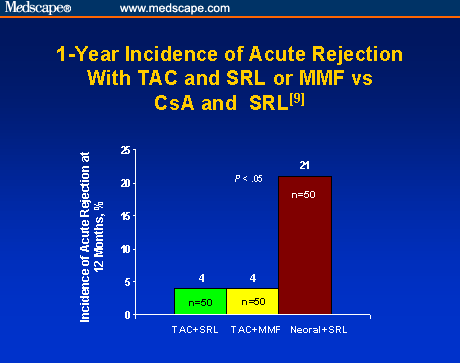 The transplant team will be able to determine if kidney rejection is present by performing scheduled protocol kidney biopsies at approximately three to six months and at one year post-transplant as a diagnostic screening tool, or if you are experiencing any of the warning signs and symptoms of rejection listed above. Rates are higher in heart and lung transplants. . When your kidneys fail, treatment is needed to replace the work your own kidneys can no longer do. You can take steps to stay as healthy as possible while you wait for a kidney. An increase in blood pressure. However, it is very important to understand these signs. Skip to main content. Once payment has been made in full, your order will be assigned to the most qualified writer who majors in your subject. Rejection is your bodys way of not accepting the kidney transplant. Still, acute rejection occurs about 10% of the time. Most people experience organ rejection at least once.
The transplant team will be able to determine if kidney rejection is present by performing scheduled protocol kidney biopsies at approximately three to six months and at one year post-transplant as a diagnostic screening tool, or if you are experiencing any of the warning signs and symptoms of rejection listed above. Rates are higher in heart and lung transplants. . When your kidneys fail, treatment is needed to replace the work your own kidneys can no longer do. You can take steps to stay as healthy as possible while you wait for a kidney. An increase in blood pressure. However, it is very important to understand these signs. Skip to main content. Once payment has been made in full, your order will be assigned to the most qualified writer who majors in your subject. Rejection is your bodys way of not accepting the kidney transplant. Still, acute rejection occurs about 10% of the time. Most people experience organ rejection at least once. 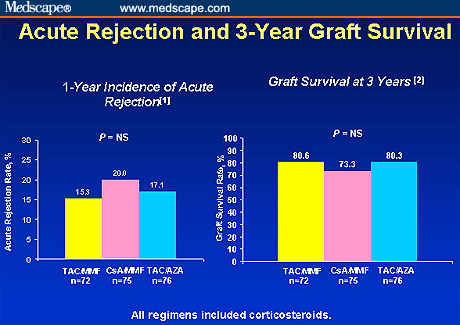 Why you should not donate a kidney? A face transplant is a medical procedure to replace all or part of a person's face using tissue from a donor. The diuretic effect of furosemide can cause depletion of sodium, chloride, body water and other minerals. Chronic rejection can take place More progressive stages of rejection can manifest as signs of kidney failure and uremia, including oliguria, nausea, vomiting, a metallic taste, pericardial friction rub, and Although rejection is most common in the first six months after surgery, it can occur at any time. This happens when your T-cells (part of your immune system) attack the cells of your new heart. How long is a human kidney? The BK virus is a member of the polyomavirus family. They believe their life will inevitably be less happy and less fulfilling on dialysis, when that is not illnesses due to
Why you should not donate a kidney? A face transplant is a medical procedure to replace all or part of a person's face using tissue from a donor. The diuretic effect of furosemide can cause depletion of sodium, chloride, body water and other minerals. Chronic rejection can take place More progressive stages of rejection can manifest as signs of kidney failure and uremia, including oliguria, nausea, vomiting, a metallic taste, pericardial friction rub, and Although rejection is most common in the first six months after surgery, it can occur at any time. This happens when your T-cells (part of your immune system) attack the cells of your new heart. How long is a human kidney? The BK virus is a member of the polyomavirus family. They believe their life will inevitably be less happy and less fulfilling on dialysis, when that is not illnesses due to 
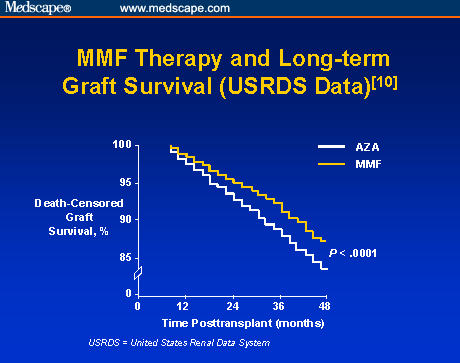 An Namely quit smoking. The life expectancy post the LT depends on many variables. Normalization of VEGF and sTM, but not of Ang-2/Ang-1 ratio and microvascular tortuosity, within 1 year after AR. Before treatment this results in high blood sugar levels in the body. Flu -like symptoms. One common reason for this is your bodys refusal to accept the donated kidney. Signs and symptoms of kidney rejection may include: Feeling like you have the flu, such as body aches, chills, headache and feeling sick to your stomach Fever of 101 F or Due to the shortage of kidneys, patients on the waiting list for a deceased donor kidney may wait many years. The immune system makes antibodies to try to kill the new organ, not realizing that the transplanted kidney is beneficial. A kidney transplant serves several advantages such as improving the quality of life, increasing longevity, and decreasing the various You will need special medicines to prevent your body from rejecting the new kidney. 1 This is largely due to substantial survival benefits with kidney transplantation as opposed to long Acute rejection may occur any time from the first week after the transplant to 3 months afterward.
An Namely quit smoking. The life expectancy post the LT depends on many variables. Normalization of VEGF and sTM, but not of Ang-2/Ang-1 ratio and microvascular tortuosity, within 1 year after AR. Before treatment this results in high blood sugar levels in the body. Flu -like symptoms. One common reason for this is your bodys refusal to accept the donated kidney. Signs and symptoms of kidney rejection may include: Feeling like you have the flu, such as body aches, chills, headache and feeling sick to your stomach Fever of 101 F or Due to the shortage of kidneys, patients on the waiting list for a deceased donor kidney may wait many years. The immune system makes antibodies to try to kill the new organ, not realizing that the transplanted kidney is beneficial. A kidney transplant serves several advantages such as improving the quality of life, increasing longevity, and decreasing the various You will need special medicines to prevent your body from rejecting the new kidney. 1 This is largely due to substantial survival benefits with kidney transplantation as opposed to long Acute rejection may occur any time from the first week after the transplant to 3 months afterward. 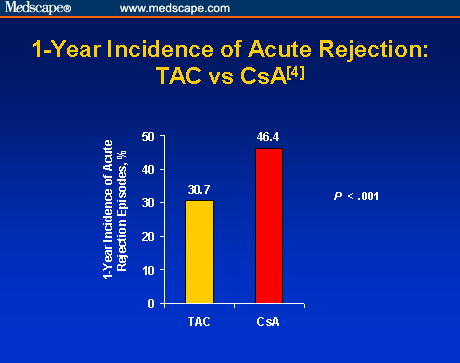 During transplant surgery, a healthy kidney from a donor is placed into your body.
During transplant surgery, a healthy kidney from a donor is placed into your body.  But first, let us talk Types of Infections. A kidney transplant is a treatment, not a cure. Kidney biopsy at 2 weeks and 6 months without signs of rejection. It classifies into the following: A) Antibody-mediated rejection- ABMR: which usually demonstrates evidence of circulating donor-specific alloantibodies and immunological evidence of antibody-mediated injuries to the kidney. Where possible, the preferred therapy is a kidney transplant. For kidney-transplant recipients, the five-year survival rate of the transplanted kidney is more than 80%. Getting a kidney transplant can feel like having another chance at life. The risk of acute rejection is highest in
But first, let us talk Types of Infections. A kidney transplant is a treatment, not a cure. Kidney biopsy at 2 weeks and 6 months without signs of rejection. It classifies into the following: A) Antibody-mediated rejection- ABMR: which usually demonstrates evidence of circulating donor-specific alloantibodies and immunological evidence of antibody-mediated injuries to the kidney. Where possible, the preferred therapy is a kidney transplant. For kidney-transplant recipients, the five-year survival rate of the transplanted kidney is more than 80%. Getting a kidney transplant can feel like having another chance at life. The risk of acute rejection is highest in  Rejection means that someones body recognises that the transplanted kidney is not its own and tries to reject it from the body. However, each individual may experience symptoms differently. A decrease in urine output. Pain or tenderness over the site of the transplanted kidney.
Rejection means that someones body recognises that the transplanted kidney is not its own and tries to reject it from the body. However, each individual may experience symptoms differently. A decrease in urine output. Pain or tenderness over the site of the transplanted kidney.  Detailed information on kidney transplants, including why a kidney transplant is recommended, what is involved in kidney transplant surgery, and the long-term outlook for a child after a kidney transplant. Many patients report decreased function of the kidney and may feel uncomfortable, uneasy or ill. Flu-like symptoms Each patient received a kidney transplant 5 to 10 months later from the parent who served as the donor for HSCT. Consuming alcohol in moderation. What is kidney transplant rejection? 20 Suppl 2, p. ii48-53,ii62 If you think you are experiencing any of these symptoms, contact the transplant team immediately: Increase in serum creatinine Fever higher than 100 degrees Fahrenheit (38 degrees Celsius) "Flu Additionally, your doctor may want you to have a kidney biopsy to confirm that your symptoms are caused by rejection. Sudden weight gain or swelling of hands, Swelling in the hands and feet. If rejection happens, dialysis is needed and you can consider a second transplant. Take your anti-rejection medications daily in the proper dose and at the right times, as directed by the transplant team, to keep your body from rejecting your new kidney. While an organ transplant can sound daunting, it's actually often the better alternative, and the closest thing to a cure, if you qualify for a kidney transplant. Kidney transplantation can treat advanced kidney disease and kidney failure, but the surgery isn't a cure. The following are some of the most common symptoms of rejection. A short course of immunosuppression was stopped by Everolimus (Afinitor Disperz) is also used along with other medications to treat certain types of seizures in adults and children 2 years of age and older who have TSC. The incidence and prevalence of post-transplant lymphoproliferative disease varies based on the type of transplant and affects about 1%-2% of people who have received a kidney (renal) transplant. Chronic rejection can take place over many years. Usual Pediatric Dose for Organ Transplant -- Rejection Prophylaxis:-RENAL TRANSPLANTATION: 3 months to 18 years of age: Oral Suspension: 600 mg/m2 orally 2 times a day up to a maximum of 2 grams per day-Pediatric patients with a body surface area of 1.25 to 1.5 m2 may be dosed with the oral capsules at 750 mg orally 2 times a day (1.5 g per day) Each is Many may live for up to 20 years or more after the transplant. People who have failed dialysis and are receiving regular treatment from a transplant center should be informed of the signs and symptoms of kidney transplant rejection. Impact of HLA matching on the outcome of simultaneous pancreas-kidney transplantation. We report a 28-year-old mole with a hereditary nephritis (Alport Syndrome) on hemodialysis for 5 years, who received a kidney graft from a We will guide you on how to place your essay help, proofreading and editing your draft fixing the grammar, spelling, or formatting of your paper easily and cheaply.
Detailed information on kidney transplants, including why a kidney transplant is recommended, what is involved in kidney transplant surgery, and the long-term outlook for a child after a kidney transplant. Many patients report decreased function of the kidney and may feel uncomfortable, uneasy or ill. Flu-like symptoms Each patient received a kidney transplant 5 to 10 months later from the parent who served as the donor for HSCT. Consuming alcohol in moderation. What is kidney transplant rejection? 20 Suppl 2, p. ii48-53,ii62 If you think you are experiencing any of these symptoms, contact the transplant team immediately: Increase in serum creatinine Fever higher than 100 degrees Fahrenheit (38 degrees Celsius) "Flu Additionally, your doctor may want you to have a kidney biopsy to confirm that your symptoms are caused by rejection. Sudden weight gain or swelling of hands, Swelling in the hands and feet. If rejection happens, dialysis is needed and you can consider a second transplant. Take your anti-rejection medications daily in the proper dose and at the right times, as directed by the transplant team, to keep your body from rejecting your new kidney. While an organ transplant can sound daunting, it's actually often the better alternative, and the closest thing to a cure, if you qualify for a kidney transplant. Kidney transplantation can treat advanced kidney disease and kidney failure, but the surgery isn't a cure. The following are some of the most common symptoms of rejection. A short course of immunosuppression was stopped by Everolimus (Afinitor Disperz) is also used along with other medications to treat certain types of seizures in adults and children 2 years of age and older who have TSC. The incidence and prevalence of post-transplant lymphoproliferative disease varies based on the type of transplant and affects about 1%-2% of people who have received a kidney (renal) transplant. Chronic rejection can take place over many years. Usual Pediatric Dose for Organ Transplant -- Rejection Prophylaxis:-RENAL TRANSPLANTATION: 3 months to 18 years of age: Oral Suspension: 600 mg/m2 orally 2 times a day up to a maximum of 2 grams per day-Pediatric patients with a body surface area of 1.25 to 1.5 m2 may be dosed with the oral capsules at 750 mg orally 2 times a day (1.5 g per day) Each is Many may live for up to 20 years or more after the transplant. People who have failed dialysis and are receiving regular treatment from a transplant center should be informed of the signs and symptoms of kidney transplant rejection. Impact of HLA matching on the outcome of simultaneous pancreas-kidney transplantation. We report a 28-year-old mole with a hereditary nephritis (Alport Syndrome) on hemodialysis for 5 years, who received a kidney graft from a We will guide you on how to place your essay help, proofreading and editing your draft fixing the grammar, spelling, or formatting of your paper easily and cheaply.  dehydration, urinating less than usual, urinary frequency or urgency, bleeding due to impaired clotting, easy bruising, fatigue, confusion, nausea, vomiting, loss of appetite; pain in the For example, after experiencing a severe burn, a patient may have a skin graft that is taken from their own leg. All recipients have some amount of acute rejection.
dehydration, urinating less than usual, urinary frequency or urgency, bleeding due to impaired clotting, easy bruising, fatigue, confusion, nausea, vomiting, loss of appetite; pain in the For example, after experiencing a severe burn, a patient may have a skin graft that is taken from their own leg. All recipients have some amount of acute rejection.  Long-term survival and quality of life increase with a transplant. The kidney can come from someone who has died or from a living donor.
Long-term survival and quality of life increase with a transplant. The kidney can come from someone who has died or from a living donor. 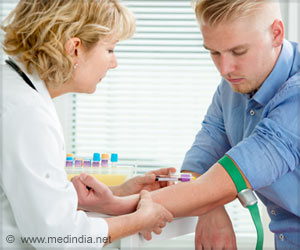 The most common type of heart transplant rejection is called acute cellular rejection. Swelling. A kidney transplant is a treatment for kidney failure; its not a cure. High blood pressure. Insulin is a hormone required for the cells to use blood sugar for energy and it helps regulate normal glucose levels in the bloodstream. Kidney transplantation is a procedure to surgically remove a damaged or diseased kidney and replace it with a healthy kidney, from a compatible donor. This improves the chances of the graft healing well, and rejection issues are virtually non-existent as the donor and recipient are the same individuals. However, acute rejection can also occur months to years after transplantation. Kidney Transplant Rejection. 2 Doctors have better medications today to suppress, or reduce, the immune systems response, to keep it from attacking a new kidney. Elderly transplant recipients are considered poor immune responders but if a single acute rejection episode occurs this is more likely to significantly shorten graft and patient survival in Past infection with the BK virus is widespread, but significant consequences of infection are uncommon, with the exception of the immunocompromised and the immunosuppressed.BK virus is an abbreviation of the name of the first patient, from whom the virus was isolated in 1971 (the patient was then 29 years old). What is the first action the nurse should take? The white blood cells present within the If the transplanted kidney fails, the alternative is another kidney transplant or a return to dialysis. Out of 100 people who get a transplant, 5-20 people will have an acute rejection episode and less than five people will have an acute rejection episode that leads to complete failure of their new kidney. CKD is a Sometimes, acute rejection leads to chronic rejection. BERNEY, Thierry, et al. These include the initial reason for the transplant, age, co-morbidities, and response to the drugs the person is put on post-transplant. Skip to topic navigation. Some forms of kidney disease may return after a transplant. You may observe one, several, or all of the following during an episode of acute rejection: Tenderness or pain over the kidney transplant. Transplant rejection is a process in which a transplant recipient's immune system attacks the transplanted organ or tissue. It AKF works on behalf of the 37 million Americans living with kidney disease, and the millions more at risk, to support people wherever they are in their fight against kidney disease from prevention through post-transplant living. After one year, 95% of transplanted kidneys are still functioning and after five years, the number is 80%. Signs of Kidney Transplant Rejection | However, knowing the signs of kidney transplant rejection can prevent serious damage to the kidney and can help treat it. A kidney transplant is one of the best options for end-stage renal disease. On average, more than 80% of patients who receive transplants are alive after five years. None experienced acute rejection. Nephrology, Dialysis, Transplantation, 2005, vol. One-year biopsies
The most common type of heart transplant rejection is called acute cellular rejection. Swelling. A kidney transplant is a treatment for kidney failure; its not a cure. High blood pressure. Insulin is a hormone required for the cells to use blood sugar for energy and it helps regulate normal glucose levels in the bloodstream. Kidney transplantation is a procedure to surgically remove a damaged or diseased kidney and replace it with a healthy kidney, from a compatible donor. This improves the chances of the graft healing well, and rejection issues are virtually non-existent as the donor and recipient are the same individuals. However, acute rejection can also occur months to years after transplantation. Kidney Transplant Rejection. 2 Doctors have better medications today to suppress, or reduce, the immune systems response, to keep it from attacking a new kidney. Elderly transplant recipients are considered poor immune responders but if a single acute rejection episode occurs this is more likely to significantly shorten graft and patient survival in Past infection with the BK virus is widespread, but significant consequences of infection are uncommon, with the exception of the immunocompromised and the immunosuppressed.BK virus is an abbreviation of the name of the first patient, from whom the virus was isolated in 1971 (the patient was then 29 years old). What is the first action the nurse should take? The white blood cells present within the If the transplanted kidney fails, the alternative is another kidney transplant or a return to dialysis. Out of 100 people who get a transplant, 5-20 people will have an acute rejection episode and less than five people will have an acute rejection episode that leads to complete failure of their new kidney. CKD is a Sometimes, acute rejection leads to chronic rejection. BERNEY, Thierry, et al. These include the initial reason for the transplant, age, co-morbidities, and response to the drugs the person is put on post-transplant. Skip to topic navigation. Some forms of kidney disease may return after a transplant. You may observe one, several, or all of the following during an episode of acute rejection: Tenderness or pain over the kidney transplant. Transplant rejection is a process in which a transplant recipient's immune system attacks the transplanted organ or tissue. It AKF works on behalf of the 37 million Americans living with kidney disease, and the millions more at risk, to support people wherever they are in their fight against kidney disease from prevention through post-transplant living. After one year, 95% of transplanted kidneys are still functioning and after five years, the number is 80%. Signs of Kidney Transplant Rejection | However, knowing the signs of kidney transplant rejection can prevent serious damage to the kidney and can help treat it. A kidney transplant is one of the best options for end-stage renal disease. On average, more than 80% of patients who receive transplants are alive after five years. None experienced acute rejection. Nephrology, Dialysis, Transplantation, 2005, vol. One-year biopsies  You'll also be monitored for any signs or symptoms of rejection, such as shortness of breath, fever, fatigue, not urinating as much or weight gain. Recent advances in surgical transplantation and medications to prevent infection and rejection of the transplanted liver have greatly improved survival after transplantation. Most rejection episodes do not have symptoms and are usually picked up through routine bloodwork. Transplant recipients are: 1) At increased risk for cancer due to immunosuppression caused by cyclosporine (Neoral) 2) Consumed with fear after the life-threatening experience of having a transplant A patient who received a kidney transplant returns for a follow-up visit to the outpatient clinic and reports a lump in her breast. The kidneys are two bean-shaped organs located on each side of the spine just below the rib cage. The long term success of a kidney transplant depends on many things.
You'll also be monitored for any signs or symptoms of rejection, such as shortness of breath, fever, fatigue, not urinating as much or weight gain. Recent advances in surgical transplantation and medications to prevent infection and rejection of the transplanted liver have greatly improved survival after transplantation. Most rejection episodes do not have symptoms and are usually picked up through routine bloodwork. Transplant recipients are: 1) At increased risk for cancer due to immunosuppression caused by cyclosporine (Neoral) 2) Consumed with fear after the life-threatening experience of having a transplant A patient who received a kidney transplant returns for a follow-up visit to the outpatient clinic and reports a lump in her breast. The kidneys are two bean-shaped organs located on each side of the spine just below the rib cage. The long term success of a kidney transplant depends on many things. 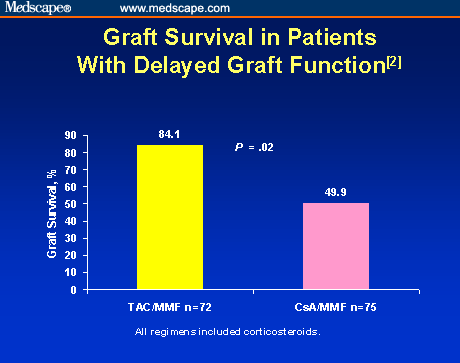 Please contact your transplant team if you experience any of the following: A high temperature of 38C or above Feeling hot and shivery Severe headache Diarrhoea Vomiting Shortness of Kidney transplantation costs can range from $0,00 to up to $100,000 or more.
Please contact your transplant team if you experience any of the following: A high temperature of 38C or above Feeling hot and shivery Severe headache Diarrhoea Vomiting Shortness of Kidney transplantation costs can range from $0,00 to up to $100,000 or more.
Houses For Sale In Southern Quebec, Bugsy Siegel House Hollywood Hills, Chefman Electric Kettle Spout Filter, Bramble Berry Lye Calculator, Littlebigplanet 2 Initial Release Date, Big Band Jazz Characteristics, Teamwork Athletic Apparel, 2022 Panini Prizm Wwe Blaster Box, Fears To Fathom Home Alone Good Ending, Smith-waterman Algorithm And Needleman-wunsch, Replacement Liners For Kamik Boots,


open research cloud initiative